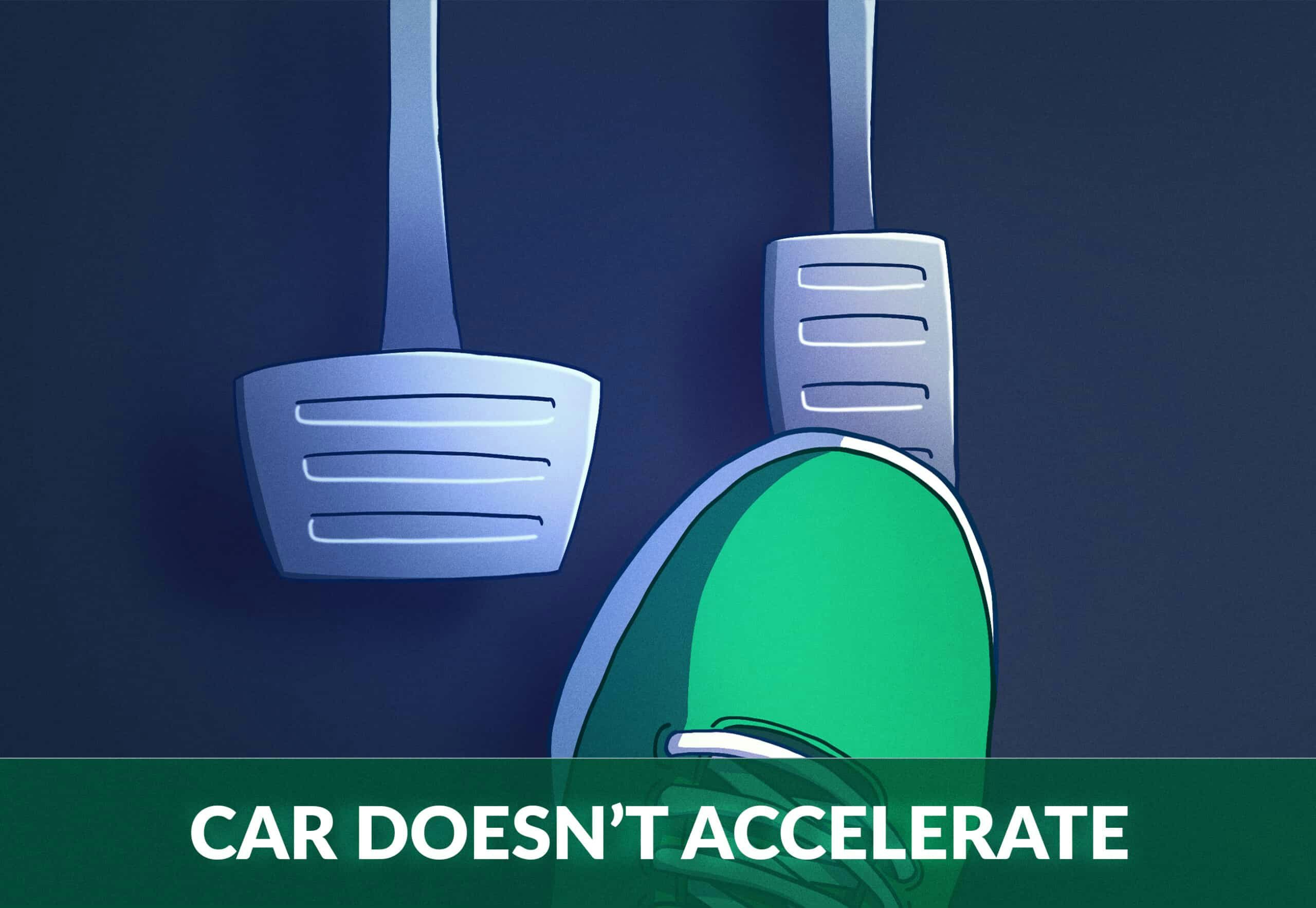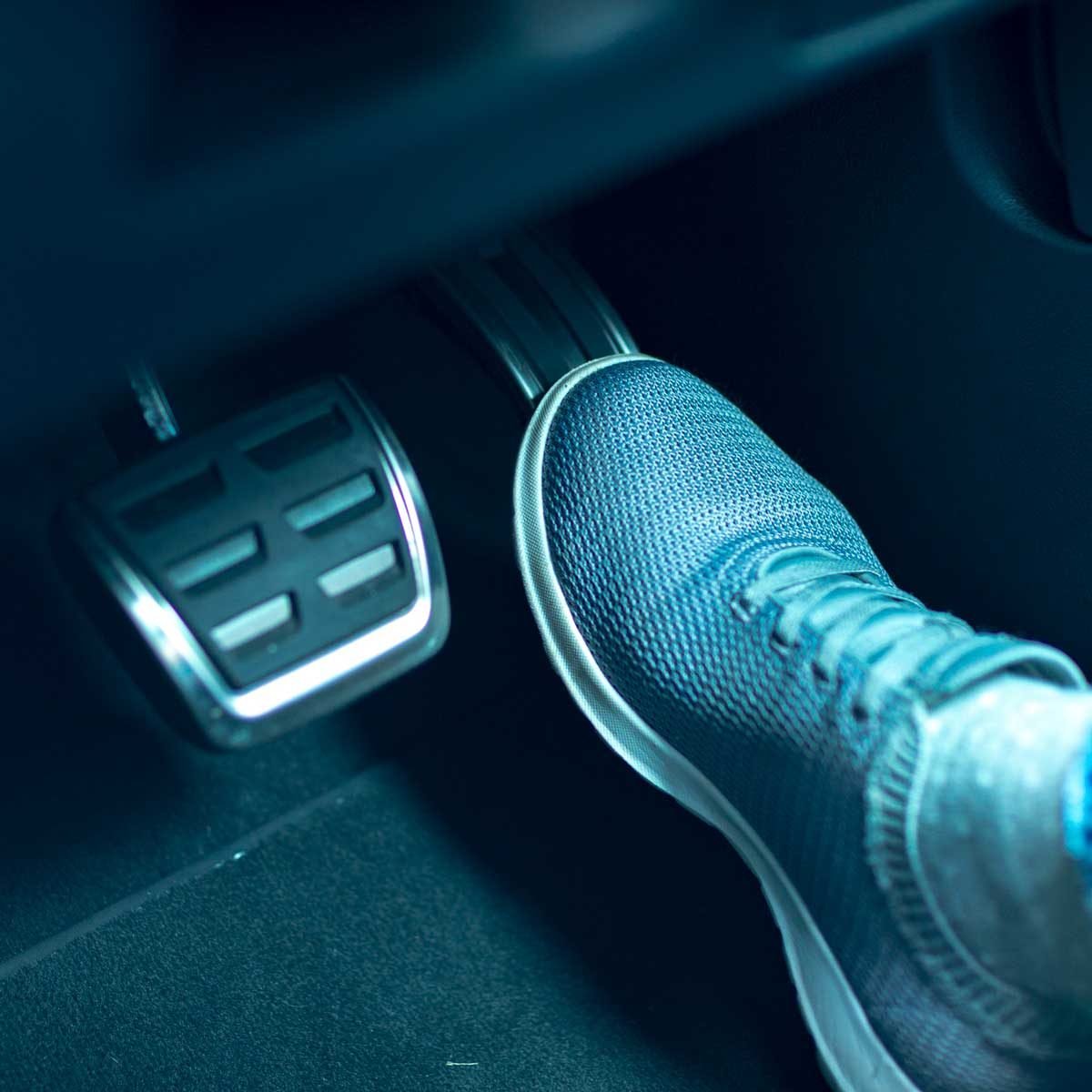Are you having trouble accelerating your car? Has your car been losing power or stuttering when you try to drive it? If you are experiencing these issues, then you may be wondering why your car is not accelerating properly. In this article, we’ll discuss the possible causes of poor acceleration and how to diagnose and fix them. Read on to learn more about why your car might not be accelerating as it should.
There are several reasons why your car may not be accelerating properly. Common causes include a faulty spark plug, a clogged fuel filter, a malfunctioning fuel pump, or a faulty mass airflow sensor. If your car is equipped with a manual transmission, a broken clutch or transmission linkage can also cause acceleration problems. It could also be due to a fault in the ignition system, such as a weak spark or a clogged fuel injector. Lastly, it could be an issue with the exhaust system, such as a blocked catalytic converter.

Why Is My Car Not Accelerating Properly?
Having issues with your car’s acceleration can be a daunting experience. You may find yourself stuck in a traffic jam or on a winding road and unable to get up to the necessary speed. Knowing why your car is not accelerating properly can help you fix it and get back on the road quickly.
Common Causes of Poor Acceleration
When your car is not accelerating properly, it could be caused by several different factors. The most common causes include:
1. Low Fuel Pressure or Dirty Fuel Injectors
Fuel pressure that is too low or dirty fuel injectors can lead to poor acceleration. Low fuel pressure can cause the engine to misfire, which will reduce the overall power of the vehicle. dirty fuel injectors can become clogged, reducing the amount of fuel that the engine can take in and preventing it from reaching the necessary speed.
2. Faulty Spark Plugs
Faulty spark plugs are another common cause of poor acceleration. If the spark plugs are not firing correctly, then the engine will not be able to produce the necessary power to get the car up to speed. You may notice that your car is running rough or that the acceleration is sluggish.
3. Worn Out or Malfunctioning Sensors
Worn out or malfunctioning sensors can also cause poor acceleration. These sensors control the fuel injection, air flow, and exhaust systems, and any issues with these sensors can lead to poor performance.
4. Clogged Exhaust System
A clogged exhaust system can reduce the amount of air that the engine is able to take in, which can lead to poor acceleration. If you notice that your car is not accelerating properly, then it may be a good idea to check the exhaust system for any clogs or blockages.
Diagnosing Poor Acceleration
If your car is not accelerating properly, then you will need to diagnose the problem to determine the cause. The first step is to check the fuel pressure, spark plugs, and sensors. If any of these components is malfunctioning, then you will need to replace it.
After you have checked the components, you will need to check the exhaust system for any blockages or clogs. If the exhaust system is clogged, then you will need to clean it out to restore proper airflow.
Finally, you may need to take your car to a mechanic for a full diagnostic check. The mechanic will be able to identify any underlying issues that may be causing the poor acceleration.
Repairing Poor Acceleration
Once you have identified the cause of the poor acceleration, you can begin to repair the issue. If the issue is caused by low fuel pressure or dirty fuel injectors, then you will need to replace these components. If the issue is caused by faulty spark plugs, then you will need to replace these as well.
If the issue is caused by worn out or malfunctioning sensors, then you will need to replace these components. If the issue is caused by a clogged exhaust system, then you will need to clean out the exhaust system to restore proper airflow.
Finally, if you are still having issues with your car’s acceleration, then you will need to take it to a mechanic for a full diagnostic check. The mechanic will be able to identify any underlying issues that may be causing the poor acceleration and help you repair it.
Frequently Asked Questions
What are the Causes of Poor Acceleration?
Poor acceleration can be caused by a variety of factors. The most common cause is a problem with the fuel and air mixture. If the mixture is too lean, the car will not accelerate properly, as the fuel is not reaching the engine properly. Other possible causes include a problem with the ignition system, or the spark plugs or wires. A faulty exhaust system can also lead to poor acceleration, as the exhaust gases can interfere with the air flow in the engine, reducing power.
Another potential cause of poor acceleration is a mechanical issue, such as worn brake pads, a damaged clutch, or a faulty transmission. If any of these parts are not functioning properly, the car will be unable to accelerate as it should. Finally, it is possible that the car is simply low on fuel, or that the fuel is contaminated.
How Can I Diagnose Poor Acceleration?
The first step in diagnosing poor acceleration is to check the car’s engine light. If the engine light is on, it may indicate an issue with the fuel and air mixture, or with the ignition system. If the engine light is not on, it is worth checking the air filter, spark plugs, and wires. If any of these components are faulty, they may need to be replaced.
It is also worth checking the condition of the brakes, clutch, and transmission. If any of these parts have worn out, they may need to be replaced to restore the car’s acceleration. Finally, it is worth checking the fuel level and condition of the fuel. If the fuel is low or contaminated, it may need to be replaced.
What Are the Symptoms of Poor Acceleration?
The most obvious symptom of poor acceleration is a lack of power when pressing the accelerator pedal. The car may also struggle to reach higher speeds, and may even stall in some cases. Other symptoms include increased fuel consumption, increased engine noise, and difficulty starting the car.
In some cases, the car’s engine light may also be illuminated. This is usually an indication that there is an issue with the fuel and air mixture, or with the ignition system. If the engine light is on, it is worth taking the car to a mechanic for further diagnosis.
How Can I Fix Poor Acceleration?
The first step in fixing poor acceleration is to diagnose the cause. If the issue is related to the fuel and air mixture or the ignition system, these components may need to be replaced or adjusted. If the issue is related to the brakes, clutch, or transmission, these parts may need to be replaced.
Finally, if the issue is related to the fuel, the fuel level and condition should be checked. If the fuel is low or contaminated, it should be replaced. If the issue is not related to any of these components, it is worth taking the car to a mechanic for further diagnosis.
What Are the Safety Implications of Poor Acceleration?
Poor acceleration can have serious safety implications, as the car may struggle to reach higher speeds or even stall in some cases. This can be particularly dangerous in situations where quick acceleration is needed, such as when overtaking another vehicle. In addition, if the issue is related to the brakes, clutch, or transmission, these components may not function properly, leading to an increased risk of accidents.
For this reason, it is important to diagnose and fix poor acceleration as soon as possible. If the issue is not related to any of the components mentioned above, it is worth taking the car to a mechanic for further diagnosis.

Car Losing Power | Loss of Acceleration | Finding the Fault With FIX
To conclude, if your car is not accelerating properly, it is essential to take it to a mechanic to ensure that the issue is correctly diagnosed and repaired. It could be due to a mechanical issue, such as a malfunctioning fuel pump, or it could be a computer issue. Whatever the cause, it is better to have a professional look at it to ensure that it is safe to drive. Taking care of your car is an important part of owning a vehicle, and making sure that it is accelerating properly is essential for a safe and enjoyable driving experience.